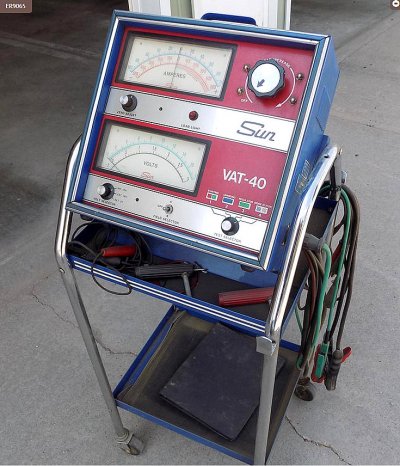Day 2 - saga
The truck was juiced on both batteries yesterday at noon.
It was parked in front of my place. The friend tried starting it once more after he had parked it. It started.
At 4 pm I went to start it but it would not start. The lights would come on but the engine would not engage.
Another friend juiced both batteries separately with jumper cables from his vehicle.
We had tried just juicing the front right - if you are looking at it with the hood up facing the vehicle. It would not start.
Only after we juiced the front left did it start.
I then spent 3/4 of an hour driving it at 50-70 kms per hour down a long straight logging road to charge up the batteries in preparation for driving home today.
Turned everything off and turned in for the evening.
At 7:45 this morning, I got in the truck, turned the key - all the lights came on but the engine would not engage.
I will have to get it juiced again this afternoon to get it moving so I can drive out to town and turn it over to a mechanic. I don't think BCAA will tow it down logging roads.
Questions?
1. The batteries are about two years old and were new when I bought them. Could it still be the batteries and should I try replacing them?
2. If the vehicle started after being juiced up with jumper cables can I rule out the starter?
3. If the vehicle started after being juiced up with jumper cables can I rule out the alternator?
4. How likely it is just some old wire (1997 GMC) shorting out.
thanks for all your support and suggestions up to now
david
Sir,
1) You really need to have each battery individually LOAD TESTED. Checking the
battery voltage is a first step, but a tired/wounded battery can give you a false good reading.
(ie: 12V with no load, but can't sustain the voltage under any appreciable load.)
2) The insides of a battery is comprised of + plates tied to the POS terminal, interleaved
with - plates tied to the NEG terminal. And these plates are submerged in electrolyte.
Why do I bring this up? Well, reading between the lines your batteries are regularly
subjected to severe physical hammering while driving to the jobsite. It's not unheard of
that this kind of severe service leads to plate material being shed and depositing on the
bottom of each cell. Enough deposits = shorting between the pos & neg plates...and you
end up with a battery that discharges itself. (One of more 'dead cells')
3) As for your dual battery setup only being 'jump startable' off of one battery? I would
investigate this, for it shouldn't matter which battery you jump to, for they are wired in
parallel. (same 12v total supplied to the truck but twice the amperage) By the way, is
the battery that you couldn't jump start to the same battery that you initially discovered
had somehow disconnected itself?
For what it's worth, all us gas-powered GMT400 owners only have the passenger side (front left)
battery in place. The additional Auxiliary battery that you diesel guys get is the one on the
driver's side. (front right) The only reason you need to know this is when you are trying
to figure out why the Auxiliary battery isn't helping. (Referring to the schematic in reply #11
above.)
****
Batteries aren't quite as fragile as fine china, but at the same time you might be flirting with
the limits of what they can sustain on a long-term basis during your daily commute. :0)
If you are working with a good mechanic, they should be able to deep charge/load test
both batteries, make sure that the batteries aren't self-discharging due to bad cells/internal
damage, and also check the rest of the truck for any parasitic electrical draws that can flatten
even good batteries overnight if they are bad enough.
The good news is that none of this is magic, just attention to some details.
Let us know what you eventually find. Best of luck!
****
The bottom line is that sounds like you have a wounded warrior that needs a good mechanic
to check it out.


